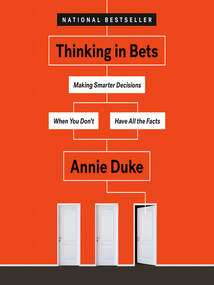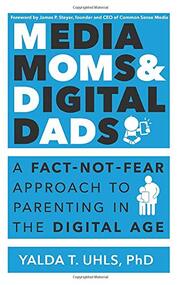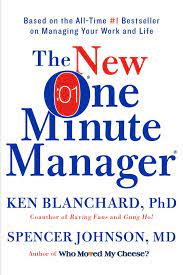 A while ago I had heard of the "poker book" Thinking in Bets: Making Smarter Decisions When You Don't Have All the Facts by Annie Duke, and I just recently finished reading it. It isn't really a book about poker; it's a book about decision science and how to make good/better decisions under uncertainty (i.e., pretty much all the time). It was a nice summary of big lessons from a lot of other books like Thinking Fast and Slow that talk about the various types of cognitive mistakes we are susceptible to. I actually wished it had more juicy poker "guts" in it; while it had various stories and anecdotes, I wished there were more lessons drawn specifically from techniques or concepts poker players use or have developed. I would've gotten more out of this book compared to others like it if it had more of those "inner secrets" from poker; even without those, it was still an enjoyable and useful book. My major notes and takeaways from the book are below.
0 Comments
 I just finished reading Media Moms and Digital Dads: A Fact-Not-Fear Approach to Parenting in the Digital Age by Yalda Uhls. It's become more relevant as screen time has become a bigger issue at home given the remote learning situation and general growing up. I got the book originally when I was still at Google when the author came to do an Authors@Google talk (see video below), and back then I didn't have any kids. I enjoyed reading the book and learned some things. Most of all, I now feel more calm with the role of technology in a kid's life and enjoyed the overview of the scientific research done to date about its positive and negative effects. There are some decent pointers in the book about best practices at home related to mobile devices, social media, and video games. My notes on the book are below.  A fellow Xoogler recommended to me the book Solve for Happy: Engineer Your Path to Joy by Mo Gawdat. I just finished it and thoroughly enjoyed it. While the last chapter on "intelligent design" may seem the most controversial, the rest of the book is grounded on (much less controversial) science and simple practical tools for happiness. The book covers mental biases, getting over fears, using meditation, and presents many other techniques and ideas that can help bring peace and happiness to everyday life. I identified a lot with the author as he is an engineer and Xoogler. The story of the loss of his son and the many associated anecdotes related to that were gut-wrenching; it's amazing that someone who has lived through that can write a book to help others be happy. There are so many good lessons in this book, and I highly recommend it. My main notes and takeaways are below. |
Archives
June 2024
Categories
All
Subscribe |
 RSS Feed
RSS Feed
